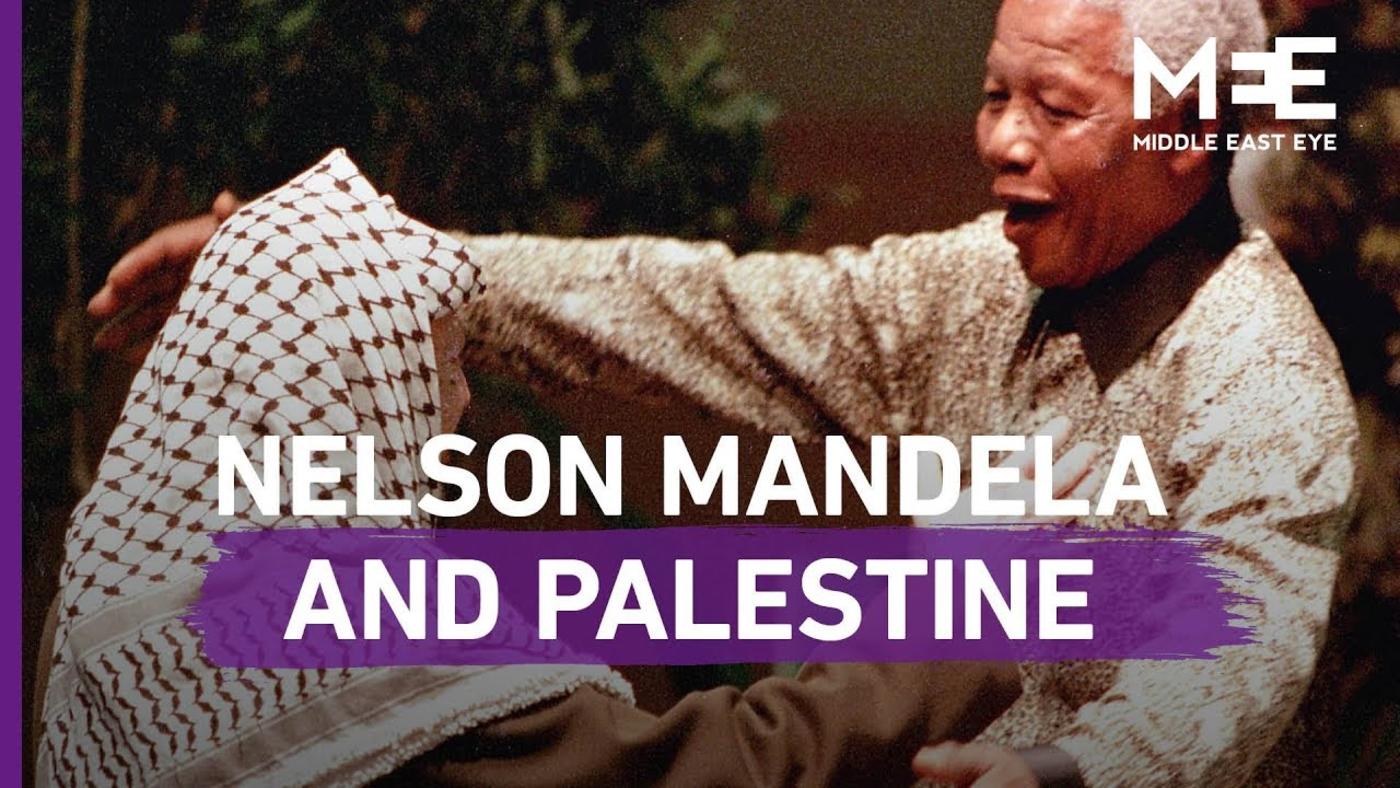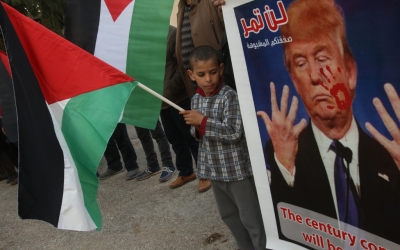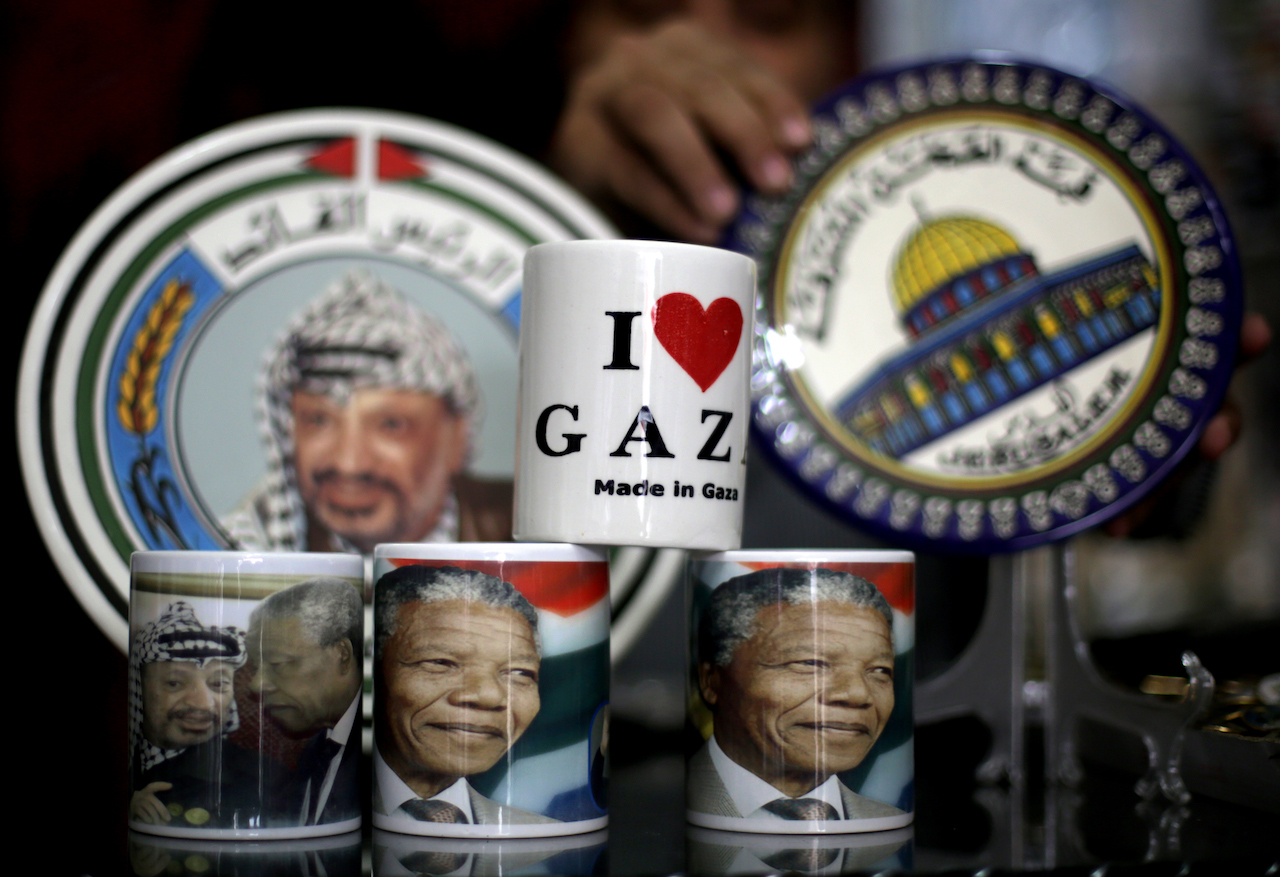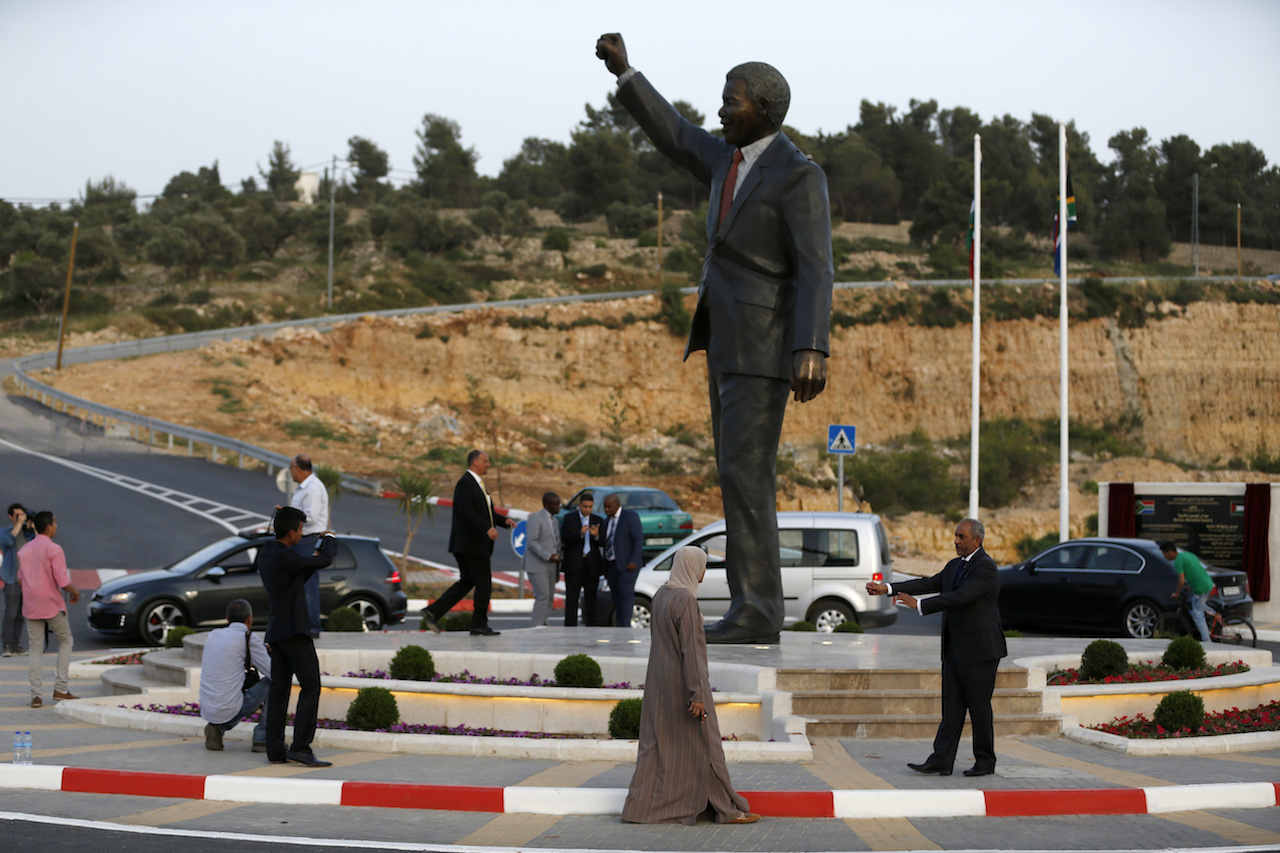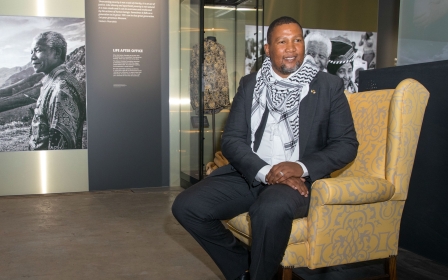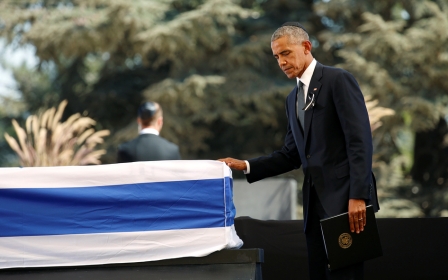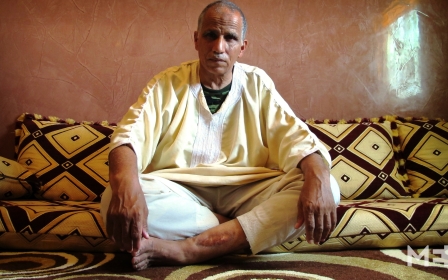Nelson Mandela and Palestine: In his own words
Thirty years ago, Nelson Mandela raised a clenched-fist salute as he walked out of Victor Verster Prison.
After spending 27 years in prison, Mandela instantly galvanized the country and would spend the next four years tearing down South Africa's apartheid system before becoming the country's first black president.
The struggle he led to end down racial segregation and transform South Africa into a democratic state has been hailed, in particular, by Palestinians, who draw parallels between Israeli occupation and the apartheid wall - and the situation black South Africans faced.
Since its inception in 2005, the BDS movement, has mobilised the apartheid analogy to further the movement for Palestinian rights and modeled its tactics after those employed by the global anti-apartheid struggle: boycotts, corporate disinvestment, and sanctions of Israel.
On Monday when South African President Cyril Ramaphosa compared US President Donald Trump's so-called 'deal of the century' to apartheid South Africa's Bantustan system.
"It brought to mind the chronicled history that we as South Africans went through," Ramaphosa told the African Union summit.
The apartheid regime once imposed the Bantustan system on the people of South Africa without consulting them and with all the oppressive elements which that plan had.
Bantustans were territories set aside for black South Africans during apartheid-era South Africa.
"As I listened to the Arab League and as I listened to colleagues from Palestine, its sounds like this plan has been consulted without all the people that matter and it sounds like a Bantustan type of construct."
On the 30th anniversary of Mandela's release from prison, Middle East Eye looks at a few notable examples of solidarity between the anti-Apartheid leader and Palestine.
'Comrade in arms'
Shortly after his release, Mandela, then 71, made it clear he was committed to ending apartheid and establishing majority rule and rights for all in South Africa.
When asked about his relationship with the Palestine Liberation Organization (PLO) during a town hall meeting in the US broadcast by the ABC channel, he reiterated his support for the group, who then were still regarded as a terrorist organisation by the US and Israel.
"We identify with the PLO because just like ourselves they are fighting for the right of self-determination," he said.
"Arafat is a comrade in arms, and we treat him as such."
'Our freedom is incomplete'
In a 1997 speech on the International Day of Solidarity with the Palestinian People, Mandela reaffirmed his support for Palestinian rights.
"We know too well that our freedom is incomplete without the freedom of the Palestinians."
'Amongst compatriots'
During a Middle East tour in 1999, Mandela visited both Israel and the Palestinian Territories.
While in Gaza, he said he felt "at home amongst compatriots."
He announced his support for the two-state solution but affirmed Israel must withdraw from occupied territories.
"Choose peace rather than confrontation. Except in cases where we cannot get, where we cannot proceed, or we cannot move forward. Then if the only alternative is violence, we will use violence."
'He was an icon'
After the death of Yasser Arafat on 11 November 2004, Mandela paid tribute to the Palestinian leader who he hailed as an "icon".
"He was an icon in the proper sense of the word. He was not only concerned with the liberation of the Arab people but of all the oppressed people throughout the world - Arabs and non-Arabs - and to lose a man of that stature and thinking is a great blow to all those who are fighting against oppression."
'Mandela would've been proud'
In 2016, Palestinians unveiled a giant statue of Nelson Mandela in the West Bank city of Ramallah.
The statue, donated by the South African city of Johannesburg, is located in a square named after Mandela.
"I think that Nelson Mandela himself would have been extremely proud of what has been done today," said Parks Tau, Mayor of Johannesburg.
Middle East Eye delivers independent and unrivalled coverage and analysis of the Middle East, North Africa and beyond. To learn more about republishing this content and the associated fees, please fill out this form. More about MEE can be found here.


